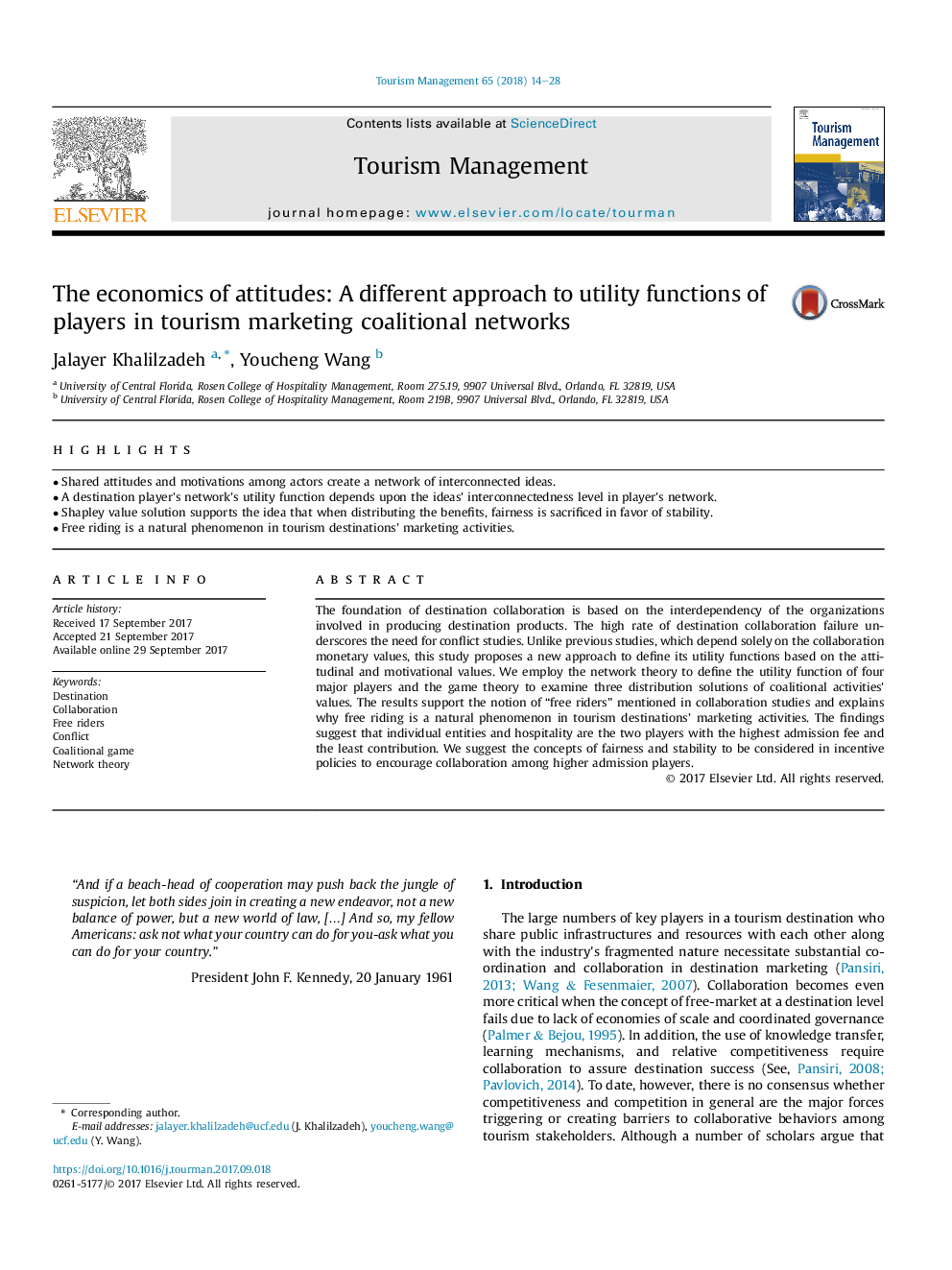| Article ID | Journal | Published Year | Pages | File Type |
|---|---|---|---|---|
| 5108457 | Tourism Management | 2018 | 15 Pages |
Abstract
The foundation of destination collaboration is based on the interdependency of the organizations involved in producing destination products. The high rate of destination collaboration failure underscores the need for conflict studies. Unlike previous studies, which depend solely on the collaboration monetary values, this study proposes a new approach to define its utility functions based on the attitudinal and motivational values. We employ the network theory to define the utility function of four major players and the game theory to examine three distribution solutions of coalitional activities' values. The results support the notion of “free riders” mentioned in collaboration studies and explains why free riding is a natural phenomenon in tourism destinations' marketing activities. The findings suggest that individual entities and hospitality are the two players with the highest admission fee and the least contribution. We suggest the concepts of fairness and stability to be considered in incentive policies to encourage collaboration among higher admission players.
Related Topics
Social Sciences and Humanities
Business, Management and Accounting
Strategy and Management
Authors
Jalayer Khalilzadeh, Youcheng Wang,
